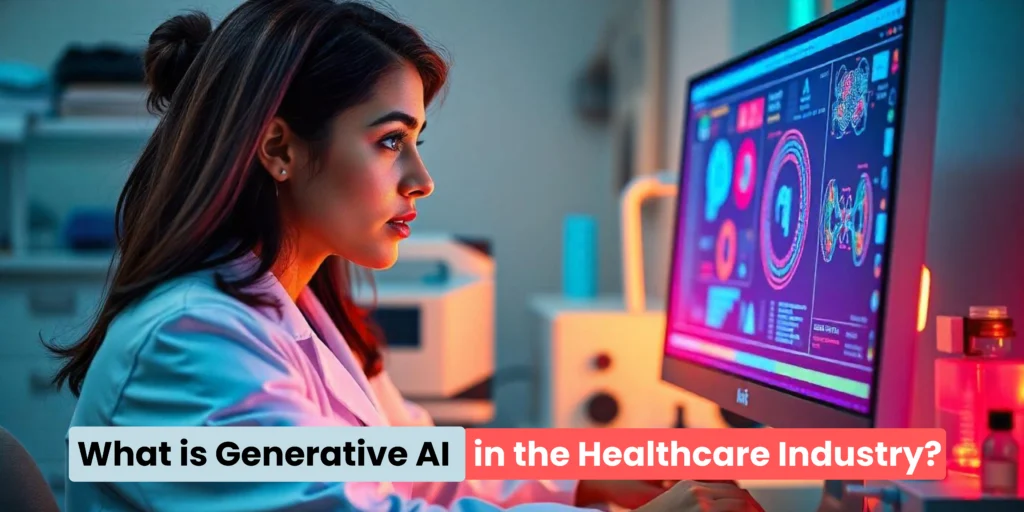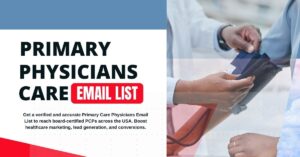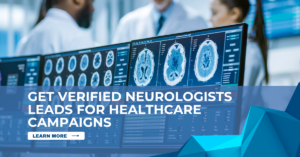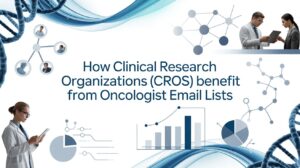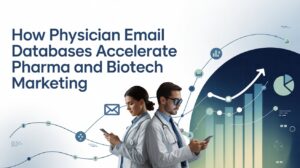In recent years, the rapid evolution of Artificial Intelligence (AI) has reshaped industries worldwide. Among its groundbreaking innovations, generative AI has emerged as a transformative force, especially in the healthcare sector. Generative AI in the healthcare industry refers to the application of AI systems that can produce new content—be it text, images, or even molecular structures—by learning from existing data. This technology has opened doors to a myriad of opportunities while presenting unique challenges that require careful navigation.
Understanding Generative AI in Healthcare
Generative AI leverages machine learning models, such as Generative Adversarial Networks (GANs) and transformer-based architectures, to create novel outputs. Unlike traditional AI, which focuses on analyzing or classifying data, generative AI goes a step further by producing original content. In healthcare, this could mean generating synthetic patient data for research, drafting medical reports, or even designing new drug formulations.
Core Capabilities of Generative AI in Healthcare:
- Data-driven innovation: Ability to harness vast datasets for generating actionable insights.
- Automation and efficiency: Automating tasks like medical imaging analysis and clinical note summarization.
- Personalization: Creating tailored treatment plans based on patient-specific data patterns.
Benefits of Generative AI in Healthcare Industry
The integration of generative AI into healthcare promises to revolutionize how services are delivered, offering significant benefits for B2B stakeholders, including healthcare providers, pharmaceutical companies, and research organizations.
- Enhanced Diagnostic Accuracy: Generative AI excels at analyzing complex medical images, identifying patterns, and flagging potential anomalies. This improves diagnostic precision, reducing errors and enabling early detection of diseases.
- Accelerated Drug Discovery: Pharmaceutical companies can leverage generative AI to identify novel drug candidates more efficiently. By simulating molecular interactions, AI accelerates the drug development process, cutting costs and time-to-market.
- Optimized Resource Allocation: Healthcare providers can use AI-generated insights to optimize staffing, equipment usage, and patient care pathways, enhancing operational efficiency.
- Improved Training and Simulation: Generative AI creates realistic simulations for training healthcare professionals. From virtual surgeries to diagnostic case studies, this technology enhances skill development in a risk-free environment.
- Personalized User Care: By synthesizing patient data, generative AI can create tailored treatment recommendations, enhancing outcomes and improving patient satisfaction.
Challenges of Generative AI in Healthcare Industry
Despite its immense potential, generative AI also brings challenges that must be addressed to unlock its full value in the healthcare domain.
- Data Privacy and Security Concerns: Healthcare data is highly sensitive, and the use of generative AI raises questions about data protection. Ensuring compliance with regulations like HIPAA is paramount to avoid breaches.
- Ethical Considerations: The generation of synthetic data or treatment recommendations must be ethically sound to prevent misuse or biased outcomes. Establishing clear ethical guidelines is essential.
- High Implementation Costs: Adopting generative AI requires significant investment in infrastructure, talent, and training. For smaller organizations, these costs can be prohibitive.
- Regulatory Compliance: Generative AI applications must adhere to stringent healthcare regulations. Navigating this complex landscape can slow adoption and innovation.
- Risk of Misinformation: While generative AI can produce highly accurate outputs, there is always a risk of generating misleading or incorrect data. Rigorous validation mechanisms are necessary to ensure reliability.
Practical Implementations of Generative AI in Healthcare
To illustrate its transformative potential, let’s explore some real-world applications of generative AI in healthcare:
- Synthetic Data Generation for Research: Generative AI creates synthetic datasets that mimic real patient data, enabling researchers to conduct studies without compromising privacy.
- Advanced Imaging and Diagnostics: AI models generate detailed interpretations of X-rays, MRIs, and CT scans, aiding radiologists in identifying critical health issues more efficiently.
- Virtual Health Assistants: AI-powered virtual assistants provide patients with accurate health information, appointment reminders, and medication schedules, enhancing engagement and care continuity.
- Drug Design and Repurposing: Generative AI identifies potential compounds for new drugs and explores alternative uses for existing medications, expanding therapeutic possibilities.
- Medical Content Creation: Generative AI drafts medical reports, patient summaries, and even clinical trial documentation, saving time for healthcare professionals.
Strategies for Implementing Generative AI in Healthcare
- Invest in Robust Data Infrastructure: Ensure that your organization’s data management systems can securely store and process large volumes of information.
- Collaborate with Experts: Partner with AI vendors, data scientists, and regulatory consultants to ensure seamless integration and compliance.
- Pilot Programs: Start with small-scale projects to test generative AI’s feasibility and effectiveness before expanding to larger initiatives.
- Focus on Training: Provide healthcare professionals with the necessary training to utilize AI tools effectively and responsibly.
- Monitor and Evaluate: Continuously assess AI applications for accuracy, ethical compliance, and impact, making adjustments as needed.
Shaping Tomorrow: Generative AI’s Role in Healthcare
The future of generative AI in the healthcare industry looks promising, with advancements expected to bring even greater efficiencies and innovations. Technologies like multimodal AI—which integrates data from various sources—and federated learning—which enables collaboration without data sharing—could redefine how healthcare services are delivered.
For B2B businesses, staying ahead requires proactive engagement with generative AI innovations. By understanding its potential and addressing its challenges, organizations can position themselves as leaders in delivering cutting-edge healthcare solutions.
Conclusion
Generative AI in the healthcare industry is more than a technological trend; it is a paradigm shift poised to redefine the sector. While it brings unparalleled benefits, including improved diagnostics, accelerated drug discovery, and personalized care, it also presents challenges that demand thoughtful solutions. For B2B businesses, leveraging generative AI effectively means embracing innovation while ensuring ethical practices, regulatory compliance, and stakeholder collaboration. The time to act is now, as the healthcare industry’s future will undoubtedly be shaped by this groundbreaking technology.
Visit our website Med Stream Data for more healthcare industry related information!

